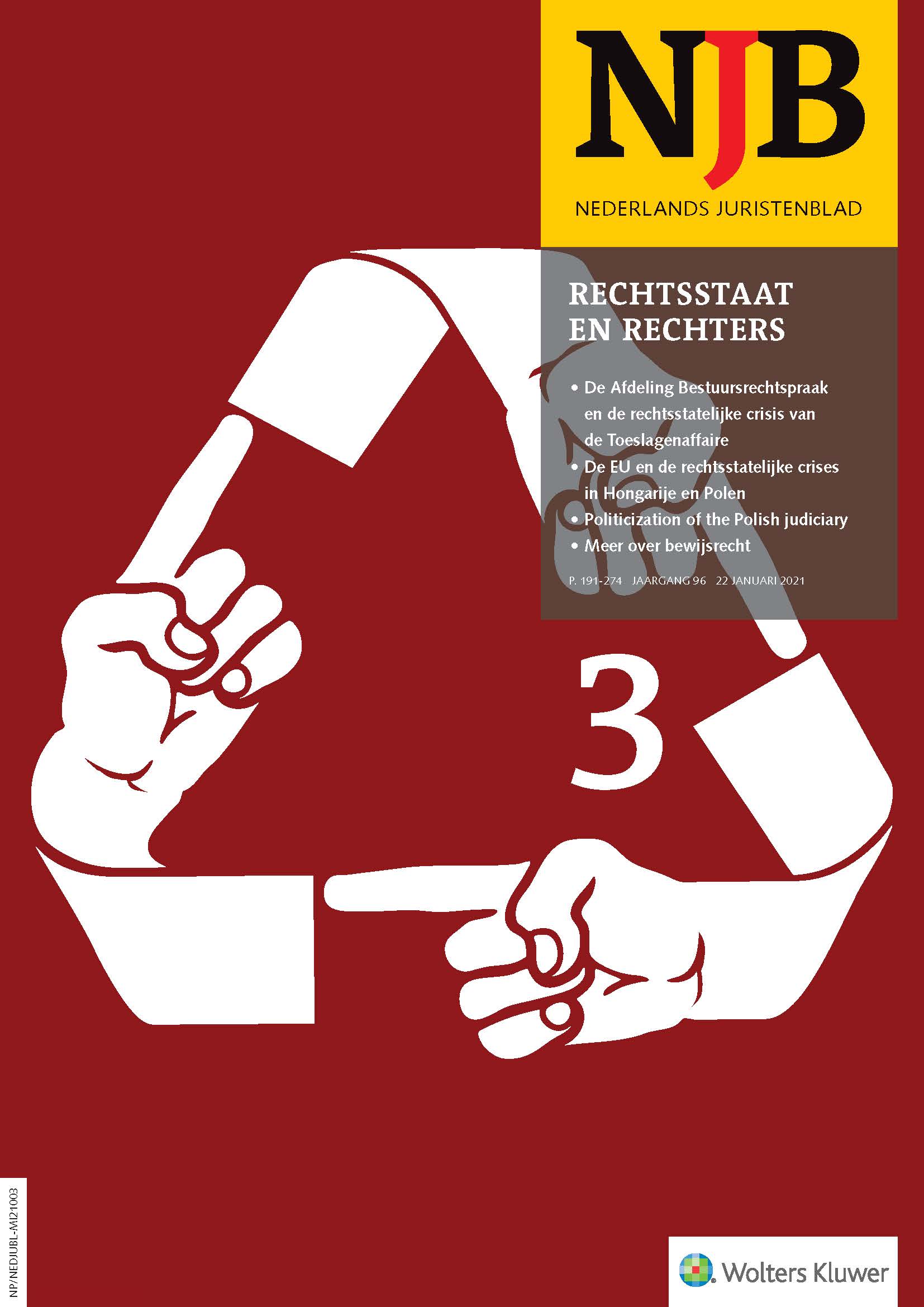
De Afdeling Bestuursrechtspraak en de rechtsstatelijke crisis van de Toeslagenaffaire
Over een onverstandige en onvoldoende reactie
De rol van de rechter in de toeslagenaffaire drukt ons met de neus op wat een rechtsstatelijke crisis genoemd mag worden. Het siert de voorzitter van de Afdeling bestuursrechtspraak dat hij in zijn reactie bereid is toe te geven dat het misging. Maar de excuses en delen van de toelichting daarbij overtuigen bepaald niet. Bestudering van de wetten en toelichtingen daarop die de kinderopvangtoeslagen beheersen, leert dat de hoogste bestuursrechter de wil van de wetgever helemaal niet heeft gevolgd. De rechter schiep en sanctioneerde een uitleg en wetstoepassing waarvoor de wet geen grondslag bood. Dat is bij zulke diep ingrijpende besluiten uit rechtsstatelijk oogpunt ernstig, en roept meer vragen op over hoe dat mogelijk was dan beantwoord worden.
Wat mij heeft verbaasd….
De wijziging in oktober 2019 van de rechtspraak van de Afdeling Bestuursrechtspraak van de Raad van State inzake de terugvordering van kindertoeslagen is juridisch een begaanbare weg, maar doet gekunsteld aan en is aan niet-juristen moeilijk uit te leggen.
De EU en de rechtsstatelijke crises in Hongarije en Polen
Urgentie vergt (gedifferentieerde) actie
De staat van de rechtsstaat in de EU is recentelijk sterk verslechterd. Volgens onafhankelijke wetenschappelijke studies bestaat de EU simpelweg niet langer enkel en alleen uit democratische rechtsstaten. Hongarije en Polen zijn de voornaamste probleemgevallen. Dit heeft een grote en groeiende discrepantie tussen bindend Unierecht en de werkelijkheid tot gevolg. De situatie is urgent. Maar er zijn ook vele opties om hier snel iets aan te doen. Er zijn rechtsmiddelen die al lang op de plank liggen maar tot op heden niet worden ingezet. Daartoe overgaan zal wel keuzes vergen, ook van een land als Nederland.
Further politicization of the Polish judiciary - A critical view from within
The beginning of 2020 was filled with optimism, caused by the ‘march of the thousand robes’ on the 11th of that month in Warsaw and the resolution of 23 January 2020 issued by the Polish Supreme Court giving judges of Poland’s ordinary courts a tool in the form of a ‘test of independence’. By the end of the year this optimism has burst like a bubble, turning into a feeling of bitterness. The ruling camp in Poland used the whole of last year to circumvent or disregard the actions of the bodies of the European Union intended to protect the independence of the Polish judiciary, and to simultaneously deepen the process of its political subordination. The feeling of bitterness is deepened by the passive attitude of the European Commission, which is not fulfilling its obligations as guardian of the treaties.
Further politicization of the Polish judiciary - A concerned view from outside
Some judges in the EU can no longer trust their own governments to protect the rule of law in their own countries. Judges in the EU are also EU citizens and as such entitled to the same freedom, security, justice and fundamental rights just like any other EU citizen. Yet this also is no longer the case in every country of the EU. In Poland judges are suspended and then persecuted. There is work to do now for all of us to support the battle of the Polish judges for the preservation of their independence and impartiality. This is a responsibility for the whole EU judiciary as a vital institution of the EU.
Eerder verschenen

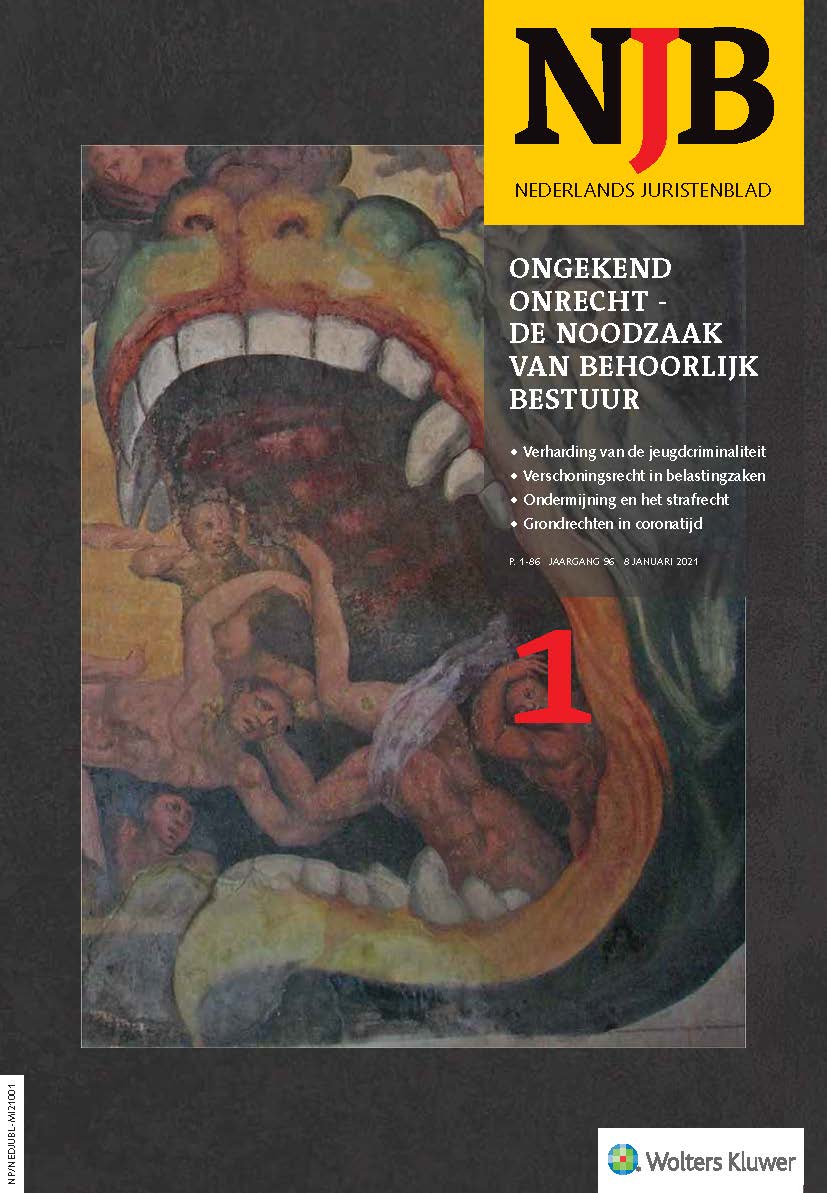
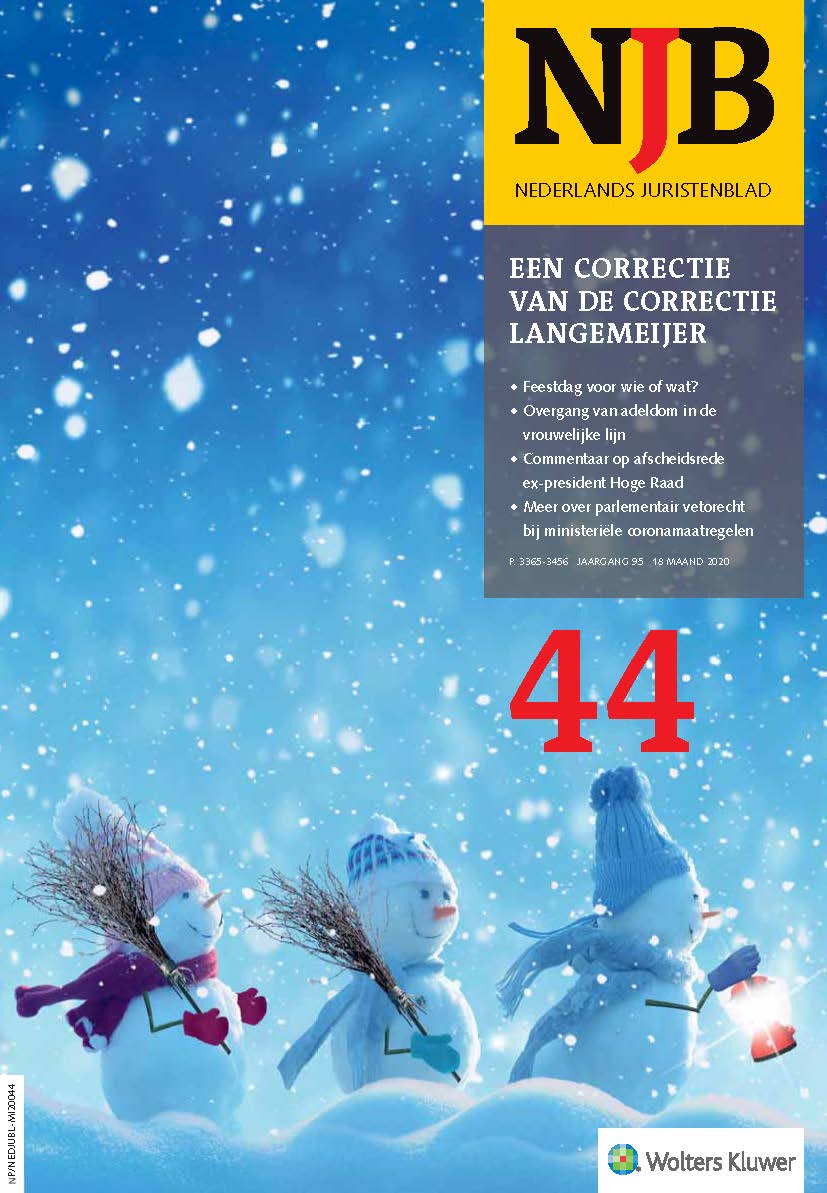
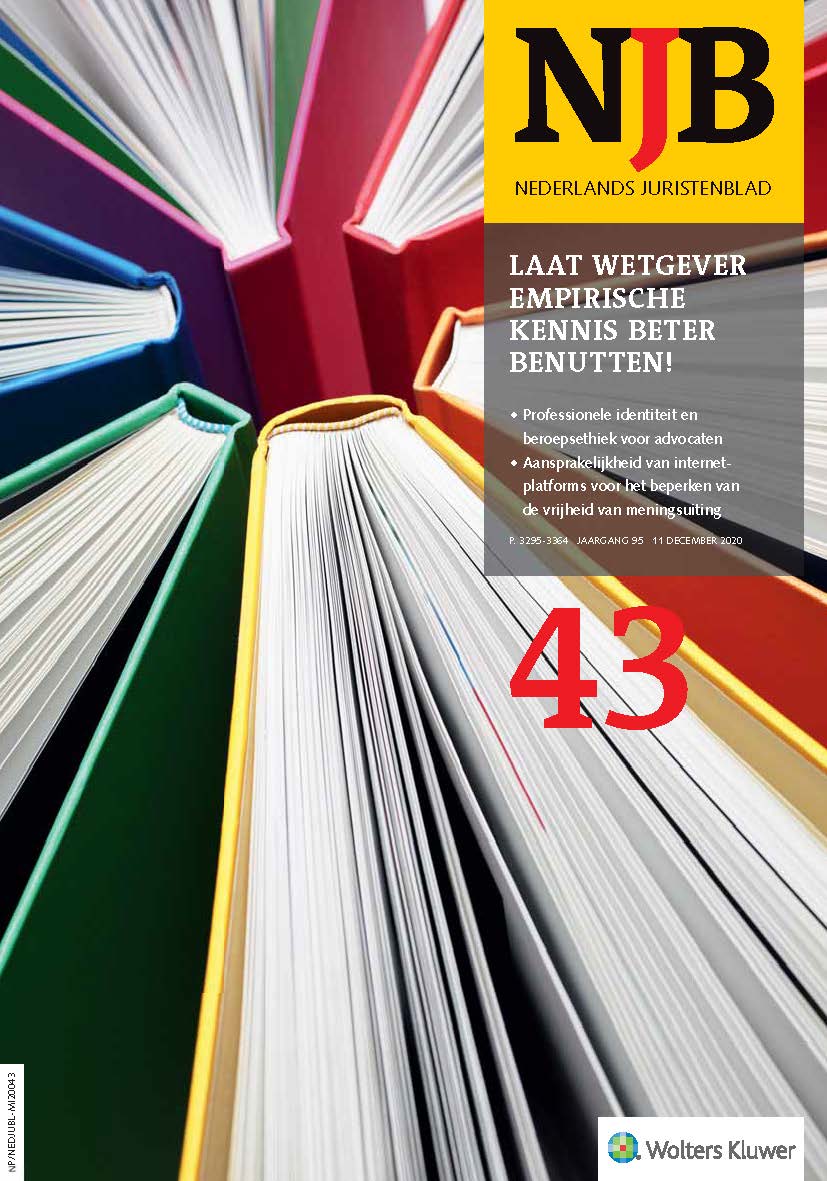
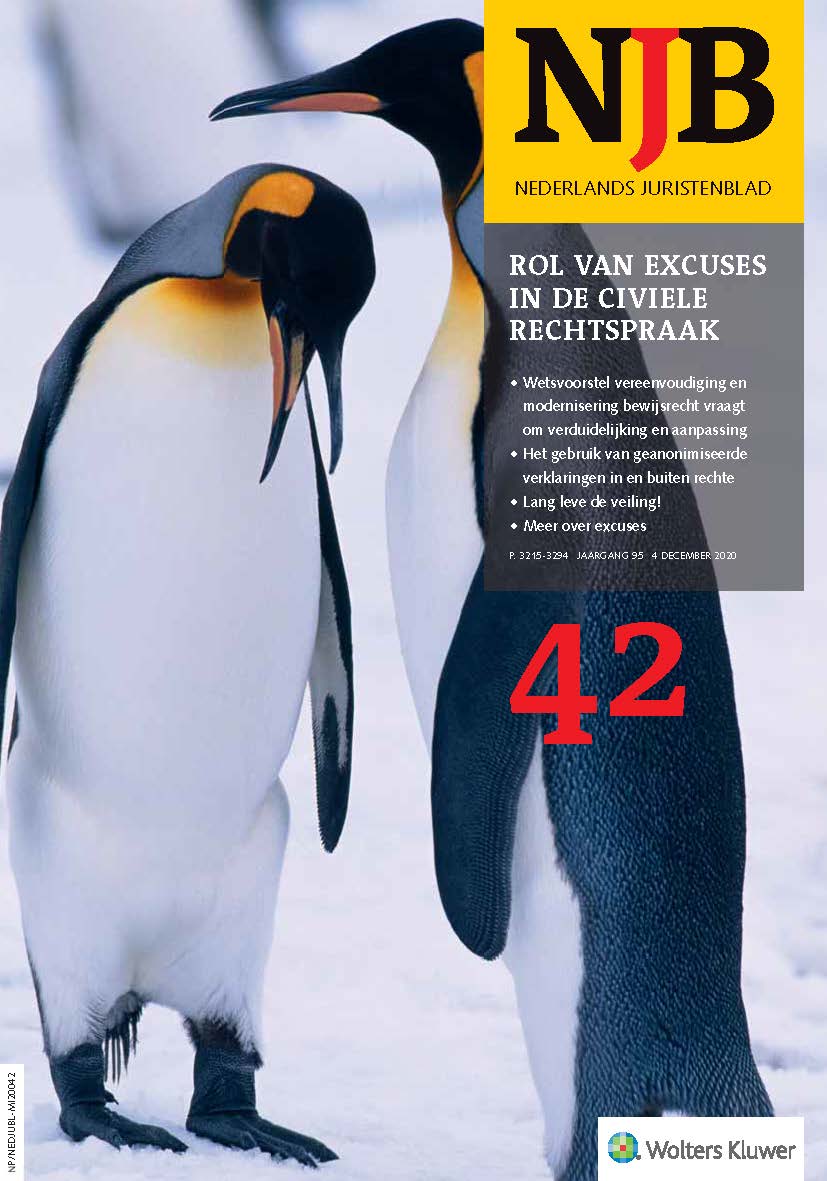

NJB 2 (2021)
13 januari 2021

NJB 1 (2021)
6 januari 2021

NJB 44 (2020)
16 december 2020

NJB 43 (2020)
9 december 2020

NJB 42 (2020)
3 december 2020

